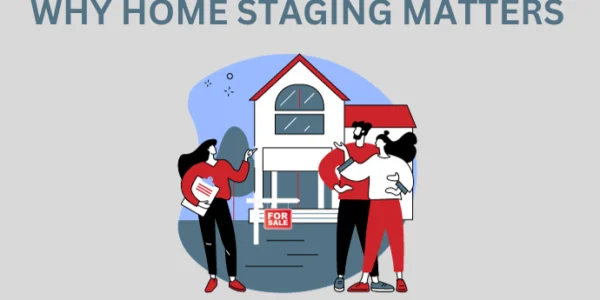My wife and I once had to break our lease a month early to move to another city. The landlord said it would be fine as long as we found a replacement tenant, and then proceeded to reject all the ones we brought to him. Next we asked if he would use the security deposit for our last month, but he refused. So we moved out anyway. The landlord took us to court for the last month’s rent plus fees.
However, the landlord made a big mistake. He rented the unit out to a new tenant while still trying to keep us on the hook. He didn’t know we knew this. Expecting a default judgment, the landlord was surprised to see us in court on the day of our hearing. He was even more surprised when we filed a subpoena for the new tenant to determine when they moved in and started paying rent.
The case was quickly dismissed and we got our security deposit back for the trouble. Leading up to our day in court I was nervous. We had no idea how it would shake out, and taking on a landlord is an intimidating experience. But we knew our rights and we were confident that he had made a mistake.
Facing your landlord in court
It often feels like the deck is stacked in favor of landlords, but they aren’t infallible. Whether your landlord is withholding your security deposit, violating housing laws, or neglecting necessary repairs, it’s important to know your rights and the steps you can take to protect yourself.
If you feel that you have a legitimate legal claim against your landlord, you may need to take them to court. Or, your landlord might try to take you to court for breaking your lease. In this article, we’ll explore some strategies for beating shady landlords in court, from documenting evidence to enlisting the help of a lawyer, so you can stand up for yourself and get the justice you deserve.
If you are thinking about taking on your landlord, below are five things you must be prepared for.
1. Know your rights
Before you do anything, you need to fully understand your rights and responsibilities as a tenant as outlined in your lease agreement. What are the consequences for breaking your lease? How much notice do you have to give before moving out?
Conversely, you will want to understand the rights and responsibilities of the landlord. How much notice do they have to give before serving an unlawful detainer? What repairs are they required to make to provide a healthy living environment?
If you believe you might have a solid case or valid cause for breaking your lease, you’ll want to do further research to make sure.
- You can check out the laws and connect with legal assistance in your area by visiting the Tenant Rights by State resource provided by the U.S. Department of Housing and Urban Development.
- Contact your local legal aid office for support. If your landlord is wrongfully evicting you or violated housing laws, legal aid may be able to help. Also check with local tenant unions or tenant defense councils in your area for additional information and support.
2. Gather evidence
If it isn’t in writing, it might as well have never happened. When considering a legal action against a landlord, it is important to gather evidence such as written documents, emails, and texts between you and the landlord. Other evidence includes videos and photographs depicting the condition of the apartment, and any witness statements that might help your case.
Bottomline, if you are hoping to beat your landlord in court you will need to be prepared to show evidence that proves they did not fulfill their legal duties or obligations.
3. Prepare your case
Depending on your specific situation, you may want to hire an attorney who specializes in landlord-tenant law. If you cannot afford one you might be able to find a pro bono attorney if your case is strong enough. An attorney can provide legal guidance, help you understand your rights, and represent you in court. Otherwise you may represent your self in civil court if you must.
Before going to court, there is a lot of paperwork first. If you are filing a suit against your landlord, you would first file a written complaint with the court. The court would then issue a summons to your landlord, the defendant, with a copy of your complaint. Then the defendant would have to file a written response that admits or denies each allegation.
In most states, the defendant has 20 to 30 days to file an answer. If they do not respond, then the plaintiff is awarded a default judgement, automatically winning the case. In the event of your landlord filing a suit against you, the same steps apply.
In either scenario, the defendant may also choose to file a countersuit agains the plaintiff. For example, if you break the lease and the landlord sues you for breach of contract, you could file a countersuit if you have evidence that the landlord didn’t uphold their legal duties or if they committed an act of housing discrimination, for example.
4. Work out a settlement
Prior to your court date, both parties have the opportunity to work out a settlement. If you are the defendant, it might be in your best interest to seek a settlement to avoid having a judgement appear on your credit report—especially if you think you might have a weak case. See if you can negotiate a smaller amount than what is owed or arrange a payment plan to get the landlord to drop the suit. Going to court is a hassle and an expense for landlords, so some might prefer to work out a deal.
5. Attend court
If a settlement can’t be reached, both parties will get their day in court. Dress your best and bring all of your evidence to show the judge. Be prepared to tell the judge or jury your side of the story. Even if you broke the lease, if the landlord did not follow legal procedure to the letter, then the court could dismiss the suit against you like it did in my situation.
Remember to be respectful to all parties during the proceedings, and above all else, be honest. Not telling the truth could result in a perjury charge, so be sure that you are completely truthful when making claims or responding to questions.
Making your stand
Beating a landlord in court requires preparation, knowledge of your legal rights, and often the assistance of a tenant lawyer. By gathering evidence, understanding your rights, hiring an attorney, filing a complaint, attending court hearings, and negotiating a settlement, you can increase your chances of receiving the compensation or relief you deserve.





